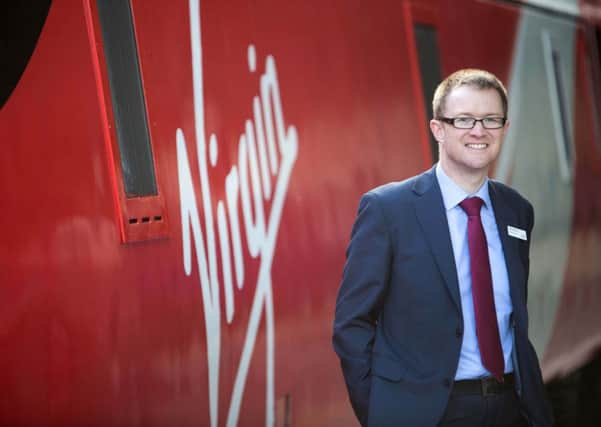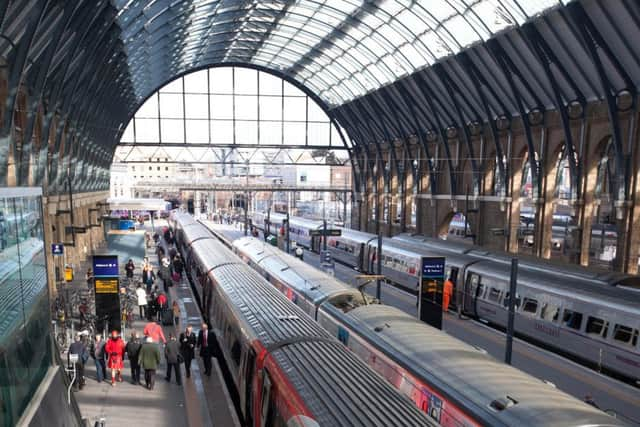Is the East Coast main line on the route to recovery?


For the small handful of people climbing on board the 9.01 train from Wakefield Westgate to Leeds yesterday morning the most remarkable thing about the journey was that the train was not just on time, but early.
A good start for Virgin Trains East Coast, who will pay the Government £3.3bn over its eight-year franchise deal that this week saw the East Coast rail route between London and Edinburgh back in private hands after five years in the public sector.
Advertisement
Hide AdAdvertisement
Hide AdWhile the brash red Virgin branding was missing from the 9.01 yesterday - it still donned the grey colours of its East Coast predecessor, and was in fact, the Skyfall train introduced with great fanfare to celebrate the release of the latest Bond film two years ago - trainspotters can expect to see reliveried and revamped trains on Yorkshire routes from this week.


But look a bit closer and the branding is creeping in. Not just on the leaflets on board but also inside Wakefield Westgate station. The ticket machines now display the Virgin East Coast brand, and if you’re lucky enough to have a ticket to get in, the entrance to the First Class Lounge now proudly shows the Virgin logo.
It may come as a surprise to find out then that Virgin, undoubtedly one of the world’s most recognised brands, only owns 10 per cent of the company that will run the route - Inter City Railways - with the Stagecoach group, which is already responsible for South West Trains and the East Midlands Trains network, holding 90 per cent.
Branding aside, what does the change actually mean for commuters?
Advertisement
Hide AdAdvertisement
Hide AdIf you look at one of the company’s leaflets on offer at Leeds Station - a lot more. Virgin promise a line that is “better connected, for a better future”, with faster journey times between London and Leeds, a new direct link connecting London with Huddersfield, Dewsbury and Thornaby, improved frequencies and 20,000 extra seats from May 2019.
Stations will no longer be “just places to wait for your train”, with better access and facilities, cycle spaces and a new cycle hire facility at Doncaster, extra seating there and in Wakefield, and ‘customer zones’ at Doncaster, York and Wakefield, which will bring staff out from behind the windows of ticket office and ready to answer your query from their tablet computers.
While critics are split on whether the re-privitisation is for the best, the Department for Transport (DfT) say the franchise will give passengers a “fantastic deal”. But it will take a lot to win back the confidence of some commuters, who have seen years of turmoil. GNER handed the franchise back in 2007, complaining it could not afford to pay the £1.3bn it had promised the Government. National Express took over the franchise but history repeated itself and in 2009 it pulled out, with the gap filled by East Coast, a Government owned business. In December last year the DfT confirmed the deal with Inter City, with plans including 75 extra station calls a day and 65 new Intercity Express trains from 2018.
On Monday, when the first Virgin Trains East Coast train left London Kings Cross for Edinburgh, the company announced it was launching a £3m community fund, where customers can bid for a slice of cash, in addition to the £140m already committed to funding the planned improvements. Managing director David Horne said the fund would allow passengers “to shape the future of their train line like never before”, putting decision-making “firmly in the hands” of the customers it serves.
Advertisement
Hide AdAdvertisement
Hide AdBut while community funds, cycle hire, and tablet waiving customer service assistants are all well and good, the crucial thing for most commuters is whether they’ll make it to work on time. And for those with a golden ticket to First Class - whether the freshly re-instated cooked breakfasts are any good.